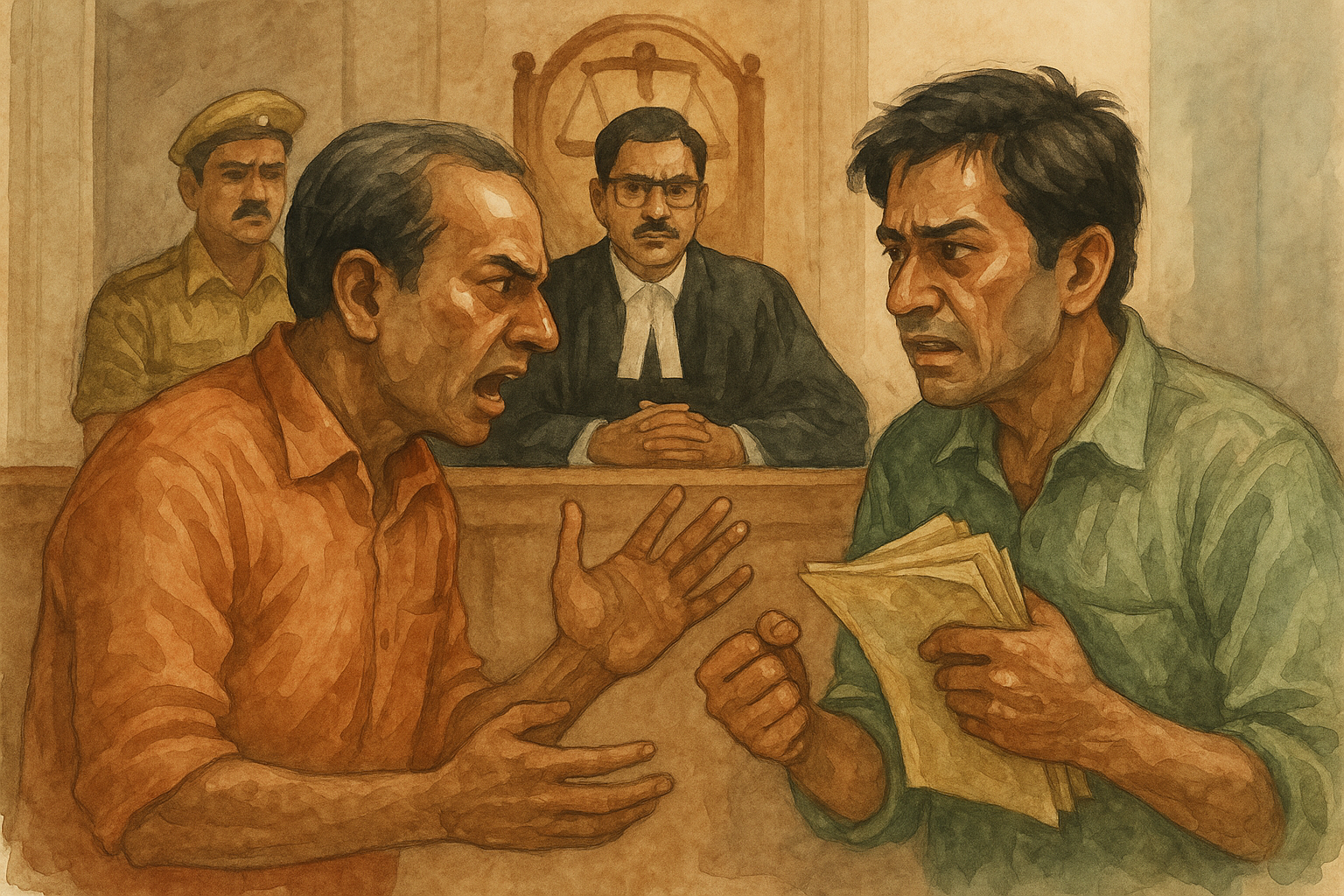In a significant judgment, the Hon’ble Patna High Court has quashed criminal proceedings initiated over a failed property sale transaction, ruling that the dispute was purely civil in nature and did not constitute a criminal offence. The petitioner had approached the High Court under Section 482 of the Criminal Procedure Code, seeking quashing of the order by the Magistrate taking cognizance under Section 406 of the Indian Penal Code (criminal breach of trust).
Simplified Explanation of the Judgment
The petitioner was accused by the opposite party (complainant) of failing to execute a sale deed after receiving ₹23.5 lakh out of a total ₹25 lakh agreed upon for the sale of a property. The complainant claimed he was ready to pay the remaining ₹1.5 lakh, but neither was the sale deed executed nor was the advance amount returned. The complainant also alleged that the petitioner used abusive language and threatened him when asked for a refund.
The key legal question was whether such a transaction, which at best reflected a breach of contract, could amount to a criminal offence—specifically under Section 406 IPC which deals with criminal breach of trust.
The Court held that merely failing to honor an agreement, especially one that is unregistered and partially signed, does not amount to a criminal offence. It noted that the remedy for the complainant lay in approaching a civil court for specific performance or refund, and not in initiating criminal proceedings.
The Court emphasized that there was no evidence of “entrustment” or dishonest misappropriation of funds that could bring the case within the ambit of criminal breach of trust under Section 405 IPC. The agreement was unregistered and lacked signatures on all pages, rendering it unenforceable in criminal law. The Court also pointed out that vague and general allegations of verbal abuse or threat are insufficient to sustain a criminal case.
Relying on various Supreme Court decisions, including Anand Kumar Mohatta v. State (2019) and Indian Oil Corp. v. NEPC India Ltd. (2006), the Patna High Court reiterated that criminal law cannot be used to settle personal scores or exert pressure in civil disputes. It further cited the landmark State of Haryana v. Bhajan Lal case to underscore that continuation of proceedings in such circumstances would be an abuse of the court’s process.
Ultimately, the Court allowed the petition, quashing the entire criminal proceeding, including the order of cognizance passed by the Magistrate.
Significance or Implication of the Judgment
This judgment serves as a crucial precedent for distinguishing between civil and criminal liabilities in property disputes. It warns against the misuse of criminal courts for enforcing private agreements. The ruling protects individuals from being subjected to criminal prosecution in matters where civil remedies are appropriate.
For the general public, this decision clarifies that not every breach of a property agreement constitutes a criminal offence. For legal professionals and government officers, it reinforces the boundary between civil disputes and criminal misconduct, ensuring that criminal law is not misused to pressure parties in contractual disagreements.
Legal Issue(s) Decided and the Court’s Decision
- Whether failure to execute a sale deed after receiving money amounts to criminal breach of trust?
- Decision: No. It is a civil dispute. The complaint lacked the necessary elements of “entrustment” and “dishonest misappropriation” under Section 405 IPC.
- Whether vague allegations of abuse or threat justify criminal proceedings?
- Decision: No. Such allegations are insufficient to sustain a criminal case without specific and credible evidence.
- Whether criminal law can be used to enforce a private agreement?
- Decision: No. The remedy lies in civil court; use of criminal proceedings in such cases is abuse of the process of law.
Judgments Relied Upon or Cited by Court
- Anand Kumar Mohatta v. State (2019) 1 PLJR (SC) 215
- Indian Oil Corporation v. NEPC India Ltd., (2006) 6 SCC 736
- State of Haryana v. Bhajan Lal, 1992 Supp (1) SCC 335
- State of Karnataka v. L. Muniswamy, (1977) 2 SCC 699
Case Title
Criminal Miscellaneous No. 3396 of 2015
Case Number
Criminal Miscellaneous No. 3396 of 2015
Citation(s)
2020 (1) PLJR 460
Coram and Names of Judges
Hon’ble Mr. Justice Ahsanuddin Amanullah
Names of Advocates and who they appeared for
- For the Petitioner: Mr. Bijendra Prasad Sinha with Mr. Anjani Kumar Sinha
- For the Opposite Party: Mr. Jitendra Prasad Singh with Mr. Arvind Kumar Pandey
- For the State: Mr. Jharkhandi Upadhyay, APP
Link to Judgment
https://patnahighcourt.gov.in/viewjudgment/NiMzMzk2IzIwMTUjMSNO-d2VSdWGkhoc=
If you found this explanation helpful and wish to stay informed about how legal developments may affect your rights in Bihar, you may consider following Samvida Law Associates for more updates.








